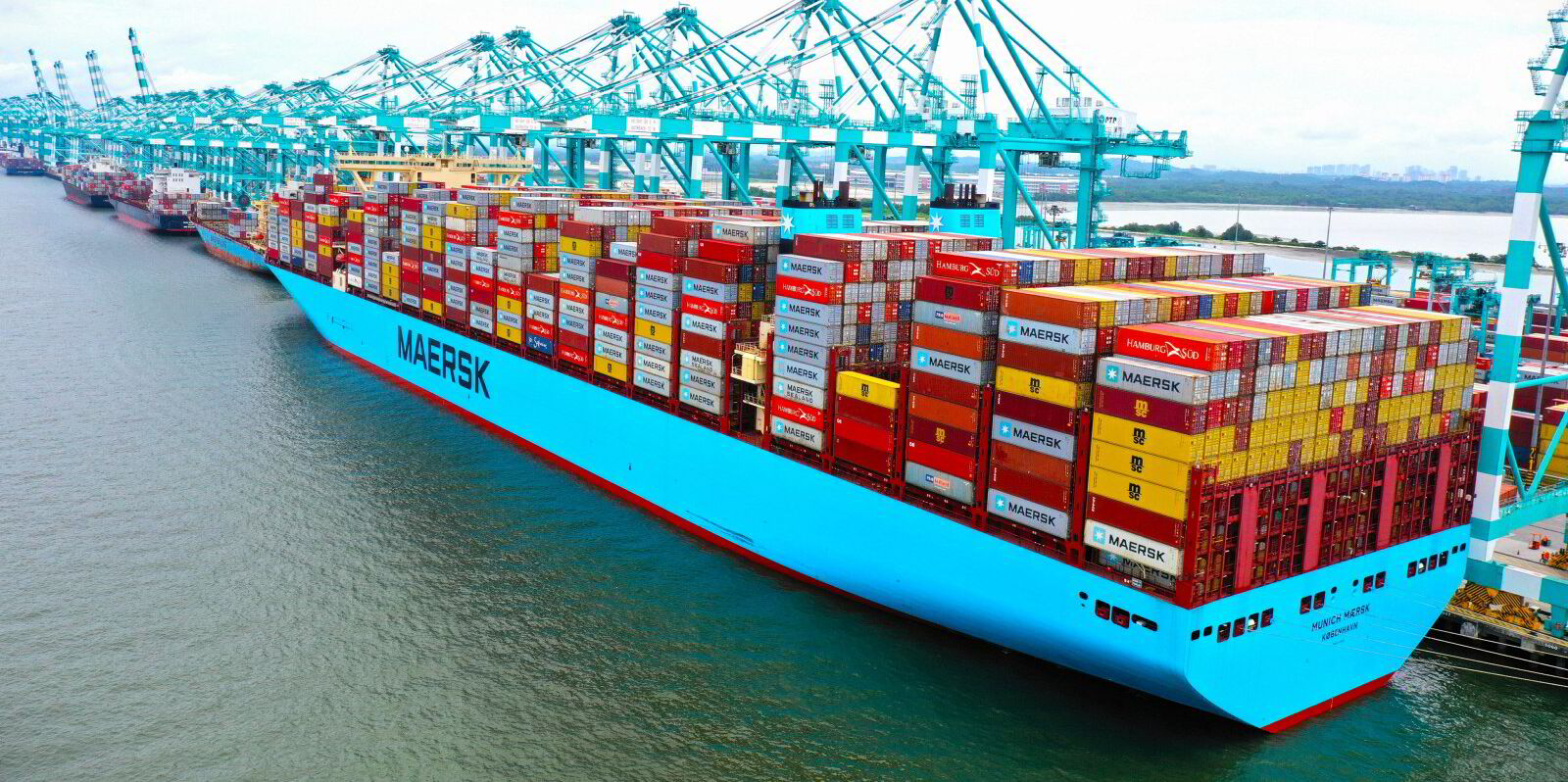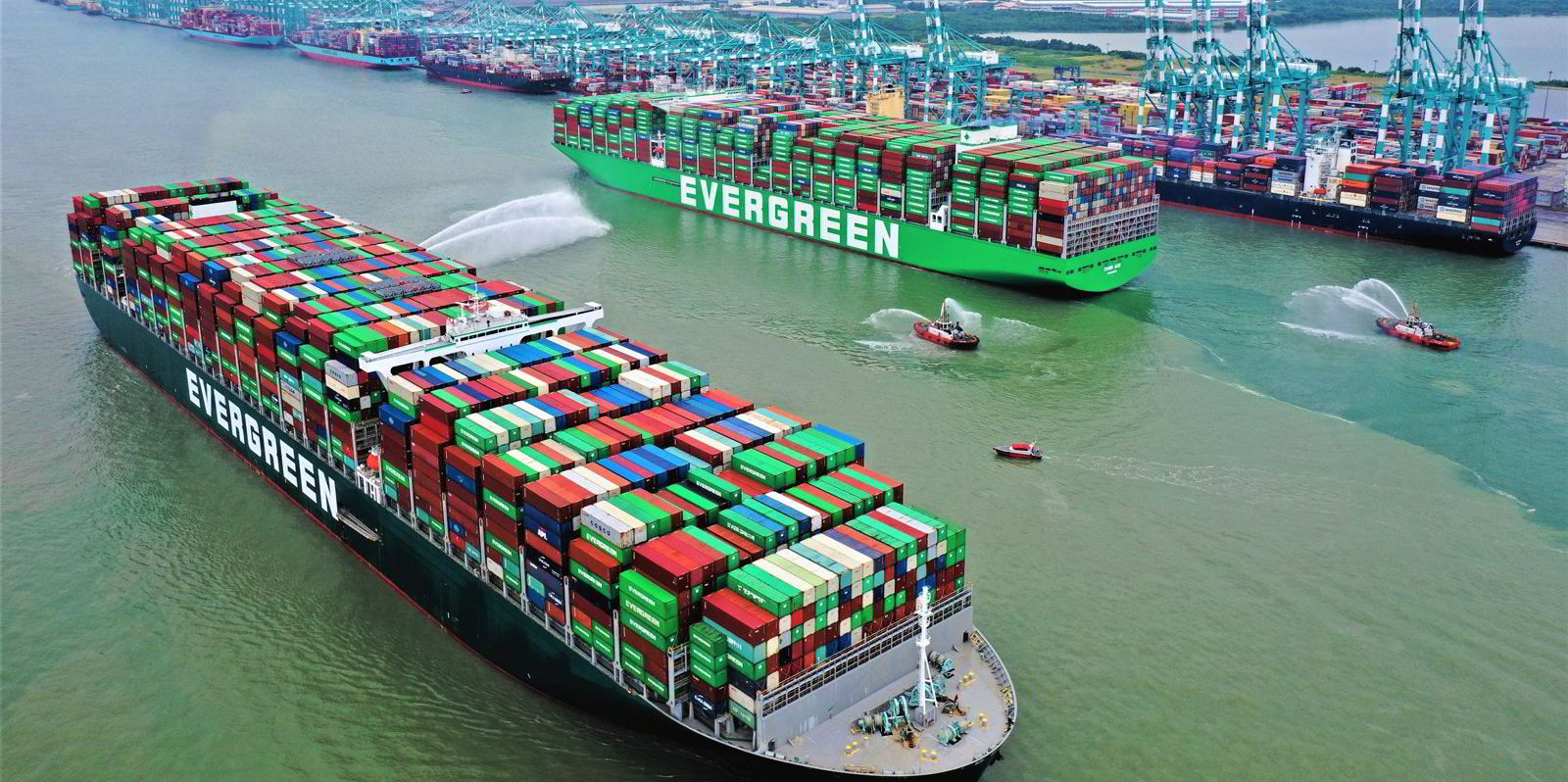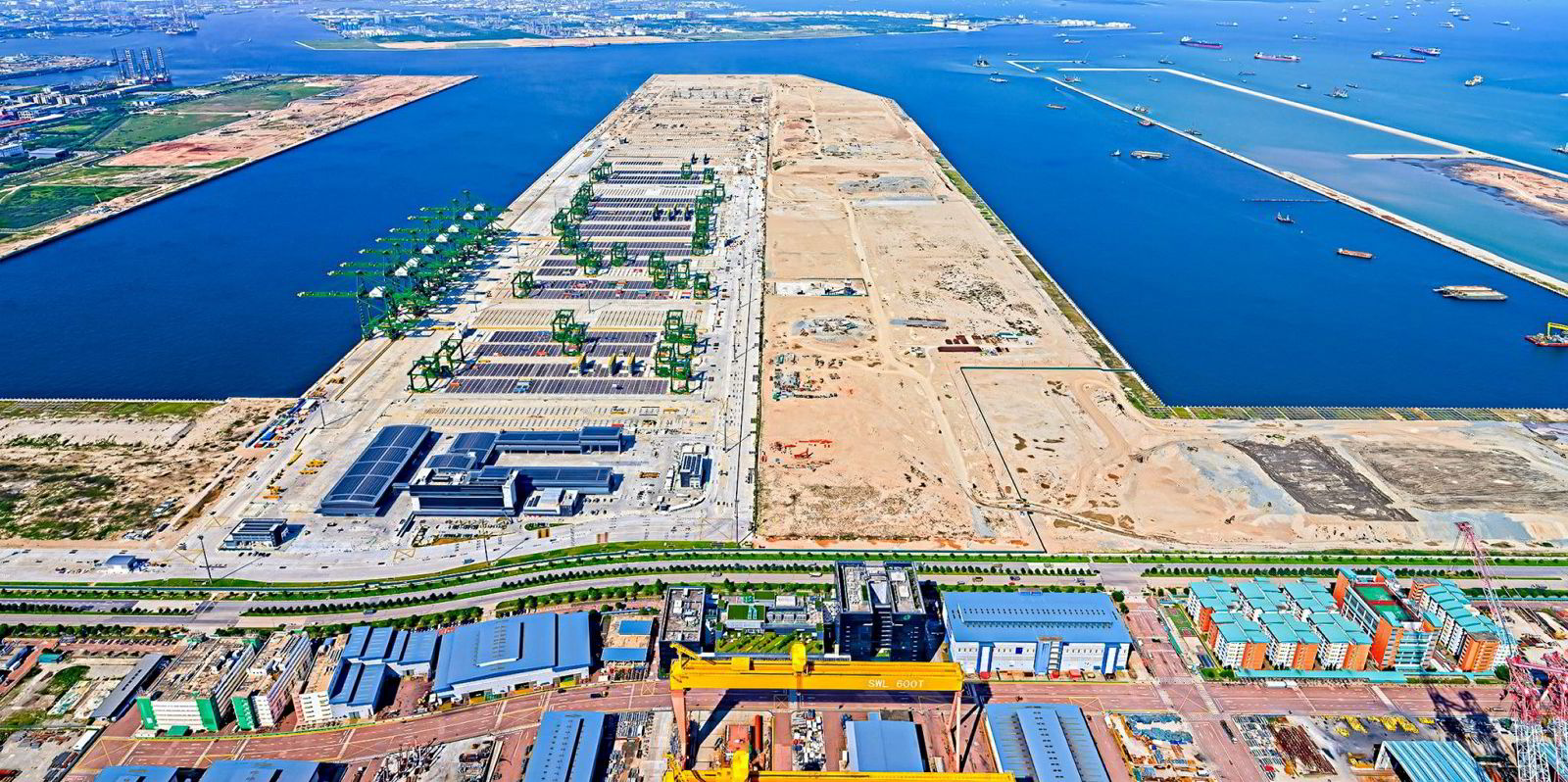Growing container port throughput and industrial disputes are the latest factors said to be fuelling global port congestion, says a top analyst.
Container throughput is expected to reach a record high of 947m teu in 2024, according to Singapore-based container shipping data provider Linerlytica.
It said full-year growth forecasts have been revised upwards to 4.7% following two consecutive years of lacklustre growth of 0.7% in 2022 and 2023.
“The sharp rise in cargo volumes in the first half of 2024 has propelled port congestion to a new 18-month high, with notable gains at several key Asian hubs,” Linerlytica said.
Malaysia’s Port of Tanjung Pelepas (PTP) reported record monthly throughput in May, bolstered by the impact of the Red Sea crisis.
Run by MMC Corp and APM Terminals, PTP handled 1.07m teu, which it claimed was without congestion at the South East Asian transshipment hub.
A growing number of ports are experiencing congestion and delays as lines struggle to keep to schedules due to large-scale diversions from the Red Sea to sailing via the Cape of Good Hope on the trades between Asia and Europe/Mediterranean.
“PTP’s strategic approach to continuously enhancing efficiency and optimising operations, with strong emphasis on safety, has been crucial in maintaining Malaysia’s competitive edge in an increasingly competitive global market,” said PTP chief executive Mark Hardiman.
MMC said Northport, its container terminal in Port Klang, Malaysia, has been benefiting from ad-hoc calls by lines trying to manage services during the crisis.
Northport handled 335,361 teu in May 2024, a 26% increase year on year, eclipsing its previous record monthly throughput of 310,865 teu in December 2020.
“The Red Sea geopolitical crisis has had a severe impact on international trade, resulting in several vessel diversions from major regional ports,” said Northport chief executive Dato’ Azman Shah Mohd Yusof.
“Since January, Northport has received more than 80 ad-hoc calls primarily due to this global crisis.
“Coupled with higher container volume driven from our aggressive marketing efforts and the higher productivity resulting from our improved infrastructure, we successfully achieved a record-breaking performance last month.”
Volumes at Singapore, the world’s largest transshipment hub, have increased by 7.7% this year, while volumes at the Sri Lankan port of Colombo have surged by more than 20%.
Linerlytica said Germany is set to become the next hotspot for port congestion after strike action was declared on 17 June that it said would “exacerbate schedule disruptions, especially on the Asia-Europe route”.
AP Moller-Maersk said the strike affects Hamburg, Bremen, Bremerhaven, Brake and Emden.
“The strikes in Hamburg will begin on 17 June 2024 at 5:00 and, depending on the port location, will last for approximately 24 or 48 hours,” it said in a market update.
“This will have widespread implications on our network. With the current outlook on the vessels, we do expect a knock-on effect for all vessels. Consequently, this will cause further delays.”





